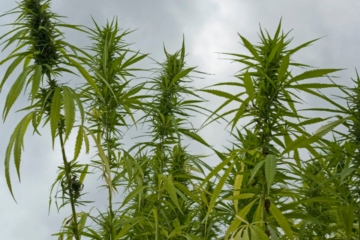Delaware’s cannabis industry is on the brink of a significant transformation. With recent legislative changes and the state’s commitment to expanding both medical and adult-use cannabis programs, the potential for economic growth, job creation, and social equity is immense. This article explores the evolving landscape of Delaware’s cannabis industry, highlighting key developments, challenges, and future prospects.
Legislative Changes and Their Impact
Delaware has made substantial strides in reforming its cannabis laws. The passage of House Bill 334 has streamlined the adult-use licensing process by replacing the merit-based scoring system with a lottery. This change aims to make the application process more accessible and equitable. Additionally, House Bill 408 introduced a conversion license for existing medical cannabis operators, allowing them to serve both medical and adult-use markets. This move is expected to expedite the availability of adult-use cannabis and generate significant revenue for the state.
The state’s medical cannabis program has also seen notable improvements. House Bill 285 has removed the list of qualifying conditions, giving doctors more discretion in recommending cannabis to patients. This change, along with the introduction of reciprocity for out-of-state patients and extended expiration dates for medical cannabis cards, is expected to increase patient access and streamline the program. These legislative changes reflect Delaware’s commitment to creating a robust and inclusive cannabis industry.

Despite these advancements, the industry faces challenges, including the high costs associated with obtaining licenses and the need for comprehensive regulatory oversight. Addressing these issues will be crucial for the sustainable growth of Delaware’s cannabis market.
Economic Growth and Job Creation
The legalization of cannabis in Delaware is poised to have a considerable impact on the state’s economy. The cannabis market is projected to reach $251 million, driven by the increasing demand for both medical and adult-use cannabis products. This growth is expected to create numerous job opportunities across various sectors, including cultivation, manufacturing, retail, and testing.
The establishment of new cannabis businesses will also stimulate local economies. Small and medium-sized enterprises (SMEs) are likely to benefit from the increased demand for ancillary services such as security, transportation, and marketing. Additionally, the state’s social equity fund, supported by fees from conversion licenses, aims to provide financial assistance to communities disproportionately affected by past cannabis prohibition. This initiative is expected to promote economic inclusivity and support the development of minority-owned cannabis businesses.
However, the industry must navigate several economic challenges, including competition from neighboring states with established cannabis markets and the need for substantial investment in infrastructure and workforce training. By addressing these challenges, Delaware can position itself as a competitive player in the regional cannabis market.
Social Equity and Community Impact
Delaware’s cannabis legislation places a strong emphasis on social equity. The social equity fund, established through House Bill 408, aims to support communities disproportionately impacted by the war on drugs. This fund will provide grants and loans to minority-owned businesses and community organizations, promoting economic empowerment and social justice.
The state’s commitment to social equity extends to its licensing process. The lottery system for adult-use licenses is designed to ensure a fair and transparent selection process, reducing barriers to entry for small and minority-owned businesses. Additionally, the removal of qualifying conditions for medical cannabis aims to make the program more inclusive and accessible to a broader range of patients.
Community engagement and education are also critical components of Delaware’s cannabis strategy. The state plans to invest in public awareness campaigns to educate residents about the benefits and risks of cannabis use. By fostering an informed and responsible cannabis culture, Delaware aims to minimize potential negative impacts and maximize the positive outcomes of legalization.
Delaware’s cannabis industry is at a pivotal moment of transformation. With progressive legislative changes, a focus on economic growth and job creation, and a strong commitment to social equity, the state is well-positioned to build a thriving and inclusive cannabis market. As Delaware navigates the complexities of implementing its new cannabis program, the potential for positive community impact and economic development becomes increasingly apparent.



